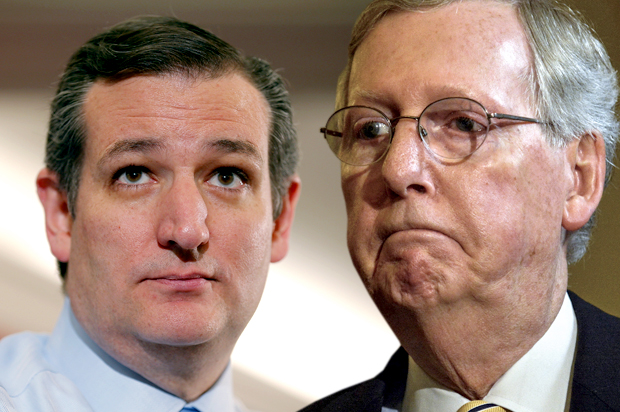The chances were slim already, but with his recent statement to the Associated Press, Texas Sen. John Cornyn removed any lingering doubt: Congress will not be passing a major criminal justice reform bill while Barack Obama is president.
“I am hopeful, but I don’t think it’s critical we do it this year,” Cornyn, a Republican, said of the bipartisan reform that’s been working its way through Congress for more than a year, but which has recently lost momentum. “”I have been involved in a lot of fights around here that have taken us years to get things done,” Cornyn continued. “And ultimately the question is, can you get it done at some point?”
For anyone who hoped to see real legislative reforms come out of D.C. before the next president takes the oath of office, this is a disappointment — one far too bitter to be made palatable by the president’s most recent executive action, his banning the use of solitary confinement on juveniles in federal prisons.
It is not, however, especially surprising. As difficult and volatile as the politics of criminal justice reform is in any circumstance, it’s exponentially more vulnerable in the toxic atmosphere that always accompanies a presidential election. So when Congress failed to pass reform in 2014, and then did so again the year after, it was easy to predict that the window had closed on criminal justice reform — at least for the time being.
You don’t need to take my word for it. You can simply look at how the 2016 campaign has affected reform’s chances already. For much of the Obama presidency, changing the country’s criminal justice system wasn’t front-page material for American politics. It was a major interest on the grassroots level and on the elite level, to be sure. For the most part, though, it wasn’t a political football. It enjoyed a kind of benign neglect.
But now that there’s a presidential campaign in full-swing, incentives have changed. Which is why Sen. Ted Cruz, Cornyn’s ostensible ally, has increasingly tried to merge an attack on reform into his campaign’s larger anti-establishment narrative. And because the general public’s support for reform was always weaker than that of activists or elites, Cruz is to some degree pushing on an open door. The specter of Willie Horton still haunts American politics.
The New York Times and Mother Jones have recently confirmed, beyond all doubt, that disliking Cruz comes so easily to most people, you might suspect it’s some heretofore unrecognized evolutionary advantage. But as tempting as it is to lay the dysfunction entirely at his feet, it wouldn’t be accurate. Because Cruz isn’t the reason why Congress — the Senate, to be specific — is putting reform on the back-burner. That distinction belongs to Senate Majority Leader Mitch McConnell.
As a good recent piece from the Atlantic’s Michelle Cottle makes clear, McConnell’s reluctance to bring reform up for a vote doesn’t stem from conviction, but raw politics. (Indeed, it’s unclear that McConnell has any convictions.) Reform may be a winner among the young and well-educated; but it’s not a topic swing-state politicians — like New Hampshire’s Kelly Ayotte, for example — want to talk about during an election. That Senate majority isn’t going to maintain itself!
And this, ultimately, is why not passing reform before 2016 — before 2015, even — was such an enormous missed opportunity. Because if reform is going to pass in 2017, it will not only require a sympathetic president (much more likely to be a Democrat than Republican), but will also need its bipartisan coalition to survive the ravages of a year-plus-long presidential campaign; and for record-low rates of violent crime to continue.
Other than that, though, it should be a cinch.


